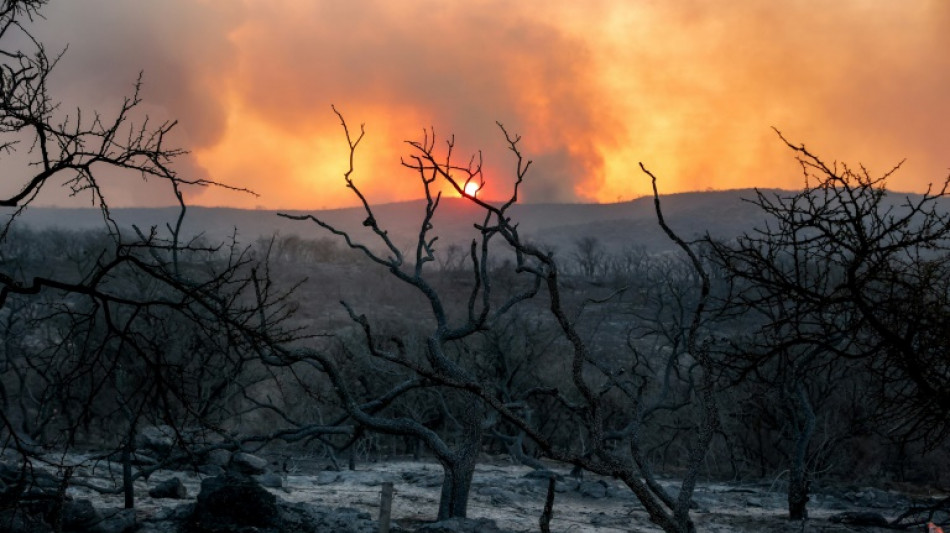
CMSC
-0.0450


Colombian authorities said Sunday they were fighting forest fires across seven departments, as a scorching drought fanned blazes across Latin America.
From Ecuador to Brazil, many Latin American nations are gripped by their worst drought in decades, fueling a blistering fire season that has set residents and governments on edge.
Colombia's National Unit for Risk and Disaster Management said in its latest report published on X that almost 11,000 hectares (27,000 acres) had been consumed by fires.
Some of the affected departments border Ecuador, Peru, and Brazil, which are also battling flames.
Authorities deployed eight airplanes to fight a fire in the village of Nagataima in the Andean Tolima department, where two people were injured as a result of the blaze.
Meanwhile Ecuador was experiencing power outages in 12 provinces on Sunday to ration electricity as the hydroelectric power-dependent country faces its worst drought in 61 years.
Nightly blackouts are planned from Monday to Thursday, as a way of "safeguarding the water resources" available after 71 days of no rain, the presidency said in a statement.
The Peruvian government this week declared a 60-day state of emergency in the three departments worst affected by fires, jungle regions bordering Brazil and Ecuador.
The drought has reduced the flow of the Amazon River where Colombia borders Peru and Brazil, choking food supplies and threatening residents' health.
Another major waterway, the Madeira River in the Brazilian Amazon, has dried up so much that residents are forced to ditch their canoes and walk across its baking sands to buy food and water, get healthcare and send their children to school.
Brazil, South America's biggest nation, has seen some of the most dramatic impacts of the drought which experts attribute to climate change.
Thick plumes of smoke have clouded major cities such as Brasilia, Rio de Janeiro and Sao Paulo, from fires that have consumed millions of hectares of forest and farmland from the Amazon rainforest to the Pantanal wetlands.
Most of the fires are set deliberately by farmers trying to clear land for agriculture.
On some of the worst days of fires, smoke blew across the border to neighboring Argentina -- battling its own fires -- and Uruguay.
burs-fb/des
M.T.Smith--TFWP